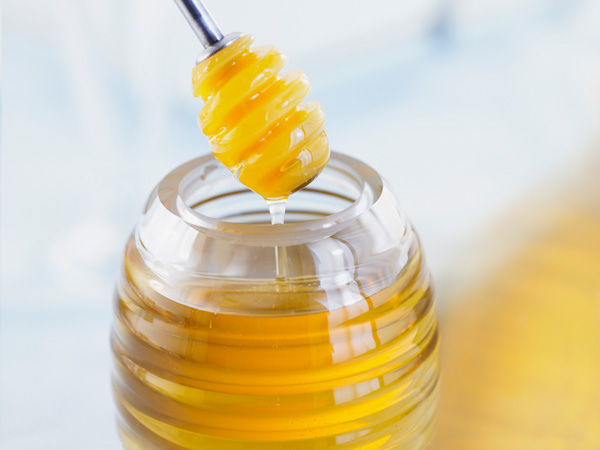Ask Mickey: Naturally Occurring vs. Added Sugars
- by Luisa Cook
 I know too much sugar defeats my personal wellness goals, so I try not to eat it often. Do I need to pay attention to whether the sugar I’m consuming is naturally occurring or added? How do I know?
I know too much sugar defeats my personal wellness goals, so I try not to eat it often. Do I need to pay attention to whether the sugar I’m consuming is naturally occurring or added? How do I know?
Sugar has been making headlines (and movies!) recently as a major contributor to our nation’s obesity crisis. It’s true that added sugars add empty calories to one’s diet, and few of us need more of those! There’s a big difference, though, between added sugars and naturally occurring sugars such as those found in dairy (lactose) and fruit (fructose).
No matter what added sweeteners are called (sugar, corn syrup, honey, molasses, maple syrup, brown rice syrup, et cetera), they offer mainly calories to the diet, rather than substantial nutritional benefits. For instance, a teaspoon of white sugar has 16 calories, and absolutely no other nutrients.
These refined sugars also contribute to insulin resistance, and may contribute to chronic diseases such as heart disease, diabetes, and some cancers. This is partly due to the effect of refined sugars on increasing chronic inflammation — in simple terms, a reaction in which the body’s normal immune system response to injury goes on overload, releasing those inflammatory chemicals constantly, even when they are not needed. These negative impacts are why leading scientific recommendations, such as those of the American Heart Association, suggest that adult Americans get no more than 6 teaspoons daily of added sugars for women and 9 teaspoons for men.
Meanwhile, some nutritious foods, such as plain milk, some plain yogurts, and fruit, contain naturally occurring sugars, but they also offer a wide range of nutritional benefits along with the energy from those sugars — benefits like fiber (which slows how fast your body metabolizes the sugar), vitamins and minerals, antioxidants, and other nutrients. These types of foods, including their natural sugars, are components of a healthy diet, and you can feel good about building them into your meal plan.
So, how can you figure out how much added sugar you’re eating? You have to do some detective work with packaged and processed foods, which often contain sweeteners — even so-called healthy ones that you wouldn’t think have them. Salad dressings, yogurts, sauces, and breads (even whole wheat!) are all foods in which added sugars may be hiding.
If you educate yourself about how to read the Nutrition Facts Label and the ingredient lists on packaged foods, you can help bring those sneaky sugars to light. Once you learn the various names that added sweeteners hide under (see our Be Sugarwise handout, PDF) in a packaged food’s ingredient list, you can reduce your sugar intake by choosing those that do not feature sugar (in any of its forms) as a primary ingredient.
But even foods that contain no or few sweeteners listed in the ingredients may contain several grams of sugar under the Total Carbohydrates section of the label. How do you differentiate between packaged foods that have a little added sugar along with the naturally occurring kind, versus those that have a lot? Right now, that’s tough, because the Food and Drug Administration does not require the sugar content of food to be separated on the label into naturally occurring versus added — but that may be changing with new labeling rules the FDA is considering. Until then, use the Sugars line under Total Carbohydrates as your speed limit — a yogurt flavored with fruit and sweetened with added sugars, for example, may easily contain as much as 26 grams of sugar, or several times your recommended daily intake! 
Many of us have a sweet tooth that can be tough to tame, but the evidence is gathering that the more sugar you consume, the more you crave. There certainly can be a place in a varied, moderate, and healthful diet to enjoy an occasional sweet treat — the occasional indulgence is part of a balanced, sustainable diet, and part of what can make a special meal memorable. However, cutting out the added sugars you didn’t even know you were consuming, while continuing to enjoy whole foods that may contain natural sugars, will offer many benefits to your energy and wellness, now and in the future.
By Luisa (Lulu) Cook, registered dietitian nutritionist (RDN)
About Ask Mickey: At Bon Appétit, we know there’s a lot on your plate that you worry about. Making good food choices helps you avoid unwanted pounds, work or study (and sleep!) better, and form long-lasting healthy eating habits. In the Ask Mickey column, a team of Bon Appétit Management Company dietitians and chefs offers tips on “chewing the right thing” and answers your nutrition questions. (Mickey, aka Michelina, is a particular feisty Italian grandmother who continues to inspire us.) Email your questions and feedback to [email protected] or text (650) 308-9594.